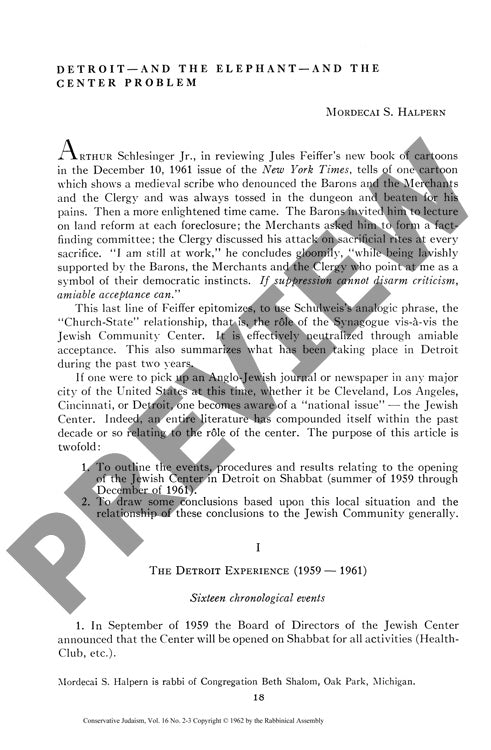Detroit and the Elephant and the Center
Couldn't load pickup availability
When Detroit's Jewish Community Center announced plans to open on the Sabbath in 1959, it ignited a two-year struggle that would reshape Jewish institutional relationships across America. The unprecedented decision sparked fierce resistance from an unlikely alliance of Orthodox, Conservative, and Reform rabbis, revealing deep tensions between secular and religious leadership in postwar Jewish communities. Through analysis of sixteen key events between September 1959 and October 1961, including editorial battles, congregational protests, and a unified rabbinical opposition statement signed by 25 Detroit rabbis, this chronological case study traces how the controversy unfolded and ultimately forced a compromise. While the Center eventually won limited approval for Sabbath programming, it faced strict restrictions on commercial activities and money handling - a resolution that exposed fundamental questions about Jewish institutional identity in suburban America. The controversy reveals how Jewish Centers, originally created as vehicles for Americanization, now struggle to define their religious role and mission. The findings suggest that synagogues must reclaim their central position in community leadership, while Centers face a stark choice: fully commit to advancing Judaism through qualified staff and authentic programming, or surrender their Jewish designation and communal funding. This pivotal case illuminates the broader challenges of maintaining traditional Jewish values within evolving American institutions.

More Information
-
Physical Description
-
Publication Information
Published
ISBN
-
Publication Credits
Mordecai Halpern

